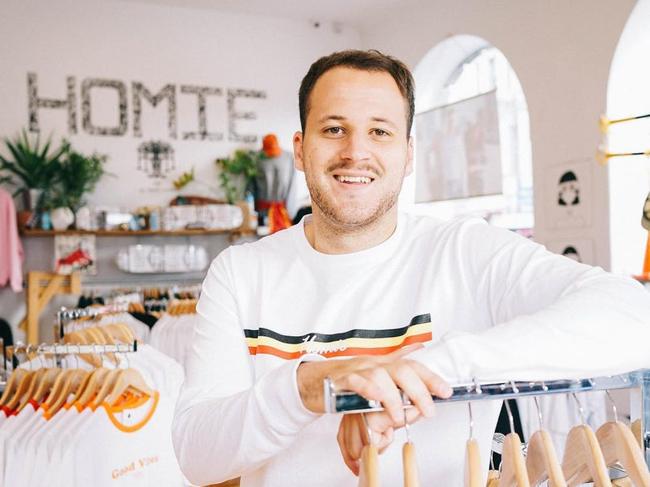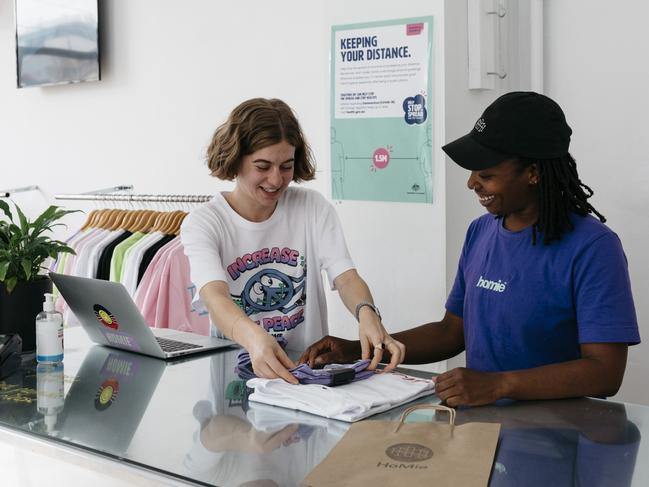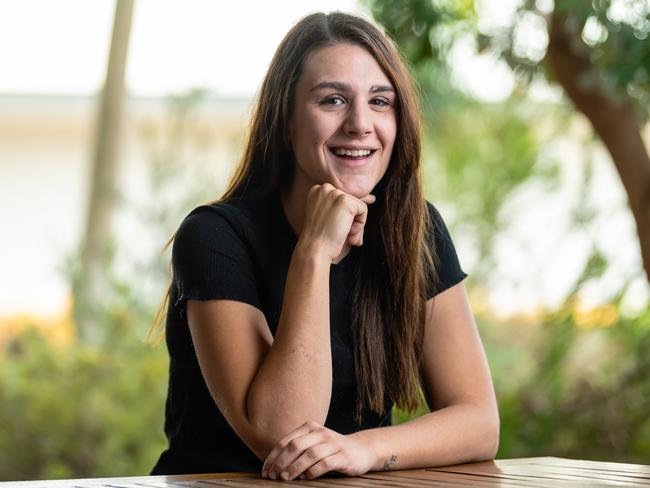The workers and jobseekers most disadvantaged by COVID-19 disruption
The COVID-19 employment landscape was particularly challenging for people with disabilities, without post-school qualifications, experiencing homelessness and Indigenous Australians.
Careers
Don't miss out on the headlines from Careers. Followed categories will be added to My News.
JOB insecurity and changes to the way we work have created difficulties for many Australians over the past year, but those traditionally disadvantaged in the job market have been especially challenged.
They are often more likely to have lost work or faced barriers to employment once businesses reopened and began rehiring.
However, there is tailored support available to help them overcome their employment challenges.
A new report from job site Indeed reveals 47 per cent of Indigenous Australians had their hours reduced amid the pandemic, compared to just 23 per cent of non-Indigenous Australians.
Meanwhile, 13 per cent of Australians with a disability experienced unemployment during the same period, compared to 9 per cent for the rest of the population.
People without post-school education have also been disadvantaged.
Australian Bureau of Statistics figures show in 2019, Australians aged under 25 who had completed Year 11 as their highest level of schooling were effectively just as likely to be in full-time work (45 per cent) as those with bachelor degrees (45 per cent) and certificate III and IV qualifications (48 per cent).
In 2020, however, the figure dropped to 28 per cent for those who had not completed high school while the numbers were effectively unchanged for their peers (both 46 per cent).

Not-for-profit employment service Workskil chief executive Nicole Dwyer says people experiencing homelessness and hardship face particularly significant barriers to employment and this group had increased since last year’s lockdowns and bushfires.
“A lot of people rebuilding after fires are staying in rental properties so we see a shortage of rental properties,” she says.
“(Since the pandemic), everyone is also wanting to holiday locally so houses that may have been available for rent are being used for holiday lets.
“It’s put pressure on low-cost housing.”
Dwyer says it is difficult for people to focus on looking for work when they are worrying about where they are going to sleep at night.
They may also not have a computer to allow them to apply for jobs in the first place, or may have lost access to identification such as birth certificates and passports.
“Our role is to remove those barriers so people can find work,” she says.
“We can do anything from helping with applications for public housing to … (supporting them) with furniture, clothing, petrol vouchers, and assisting with public transport or helping people get their car back on the road and registered.”
Dwyer’s advice for anyone experiencing homelessness is to tell Services Australia or their employment service provider about their situation
“They might feel shy about disclosing that they are in difficulty but let us know so we can help,” she says.

In Melbourne, streetwear clothing brand and social enterprise HoMie is using 100 per cent of its profits towards creating meaningful training and employment opportunities for young people affected by homelessness.
Co-founder Nick Pearce says six months after graduating from an internship, 95 per cent of participants are working in mainstream employment and/or enrolled in further education and 92 per cent have successfully transitioned into private rentals.
“If young people affected by homelessness or hardship have a key support worker and are
linked to a support service, they can let their support worker know they are interested in the
internship with HoMie,” he says.
“From there, the support worker can reach out for additional information and for the application process.”
HoMie was awarded a $50,000 Westpac Social Change Fellowship.
Other organisations supported by Westpac Foundation include: Green Collect, which creates jobs through its waste collection service that keeps “hard to recycle” items out of landfill; Good Cycles, which offers young people employment pathways and contributes to more sustainable cities; Free to Feed, which creates inclusive communities for asylum seekers and refugees through shared food experiences; and YMCA ReBuild, which helps young people previously involved in the criminal justice system to reintegrate back into the community.

HARD TO WORK FROM HOME WHEN HOMELESS
Cristy Grange moved from Alice Springs to Adelaide in late 2019 to find work opportunities but within a few months the pandemic had turned the job market on its head.
“While many people were happy to work from home in 2020, for me it wasn’t possible because at times I didn’t even have a home to work from,” she says.
“I initially found it hard to get a job here but was eventually placed with an insurance company early last year and began training in their office – then the pandemic hit.
“All of a sudden, I couldn’t work and found myself without an income or somewhere to live.”

With the support of Workskil Australia, Grange’s employment consultant referred her to an Indigenous-identified role as an administration assistant with Skilltech – part of Downer Group, a service provider that designs, builds and maintains infrastructure and facilities.
Through Workskil’s Transition to Work program, Grange prepared for her interview with company research and mock interviews and found suitable business attire.
She started her new role in December and will soon begin a Certificate III in Business Administration traineeship.
“I’ve always wanted to study business and now I’m leaning more towards psychology or law,” Grange says.
“My colleagues have been fantastic, welcoming me warmly. I’ve had great feedback and it’s nice to be part of the team.”
More Coverage
Originally published as The workers and jobseekers most disadvantaged by COVID-19 disruption




